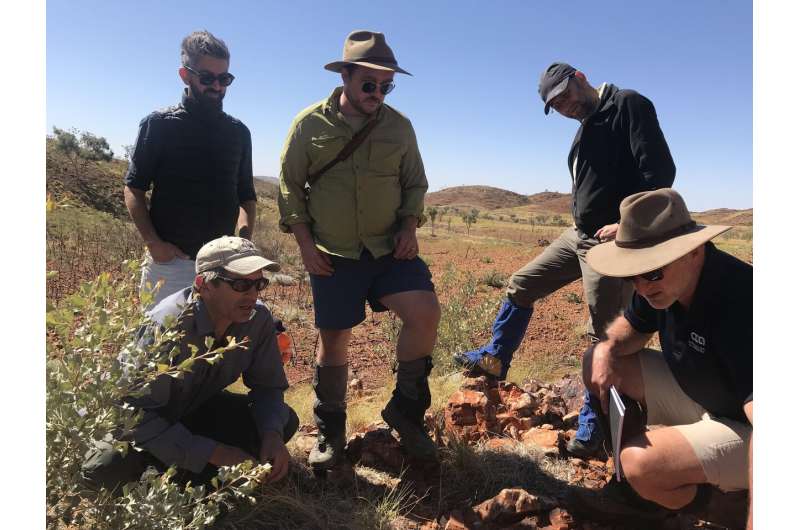Scientists explore outback as testbed for Mars

This week, scientists from NASA's upcoming Mars 2020 mission joined their counterparts from the joint European-Russian ExoMars mission in an expedition to the Australian Outback, one of the most remote, arid regions on the planet. Both teams came to hone their research techniques before their missions launch to the Red Planet next summer in search of signs of past life on Mars.
The researchers know that any proof of past life on Mars will more than likely be almost microscopic in size. That's where the Pilbara region of North West Australia comes in.
"The Pilbara Outback is home to the oldest confirmed fossilized lifeforms on Earth, called stromatolites," said Ken Farley, project scientist for Mars 2020 at NASA's Jet Propulsion Laboratory in Pasadena, California. "If we can better understand how these fossils came to be here—and the nearby geological signposts that help point the way to them—we'll be that much more prepared when hunting for signs of life on Mars."
The field trip was led by Martin Van Kranendonk, a professor of geology and astrobiology at the University of New South Wales in Sydney.
"Just as the Apollo astronauts visited areas of geologic interest on Earth before they journeyed to the Moon, the scientists of Mars 2020 and ExoMars are doing their due diligence before their missions make the 100-million-plus-mile [160-million-plus-kilometer] trip to the Red Planet," said Mitch Schulte, Mars 2020 program scientist at NASA Headquarters in Washington. "Martin helped them by providing a thorough and thought-provoking look into the geologic features of the Pilbara."
The first joint science trip for the Mars 2020 and ExoMars teams will conclude Aug. 24, when the scientists will pack up their field notes, fold up their tents and return to home. But the results from this astrobiology expedition will have positive, long-lasting ramifications in humanity's hunt for evidence that we are not alone in the universe.
The launch window for Mars 2020 opens on July 17, 2020. It will land at Mars' Jezero Crater on Feb. 18, 2021. The launch window for ExoMars opens July 25, 2020. It will land on the Red Planet in March 2021.
Provided by Jet Propulsion Laboratory





















